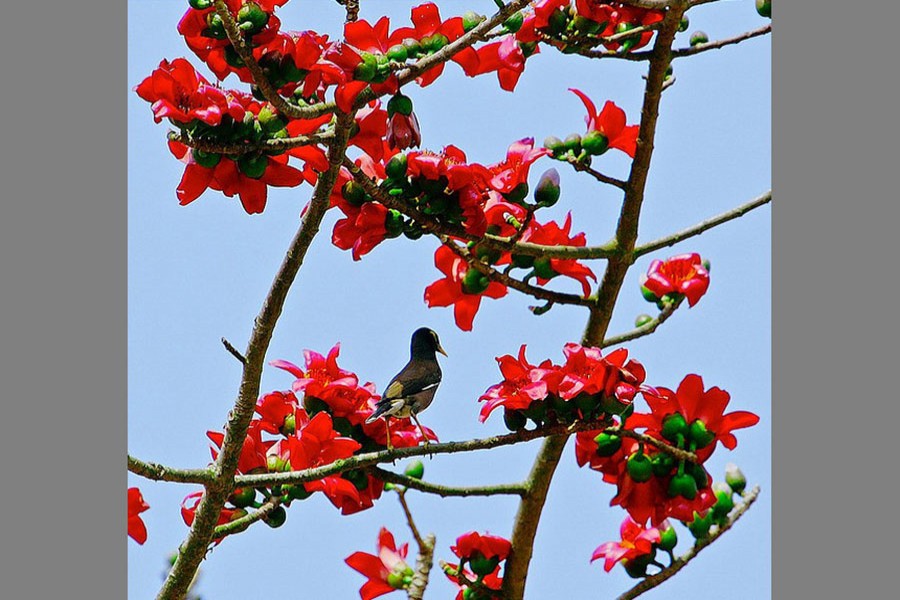This year the winter was perhaps warmer and more short-lived than before. In the country's north the wintry spell was severer and more prolonged. However, in the capital it was hardly cold enough to send people to bed and under quilts or blankets early in the evening or night. Only after a depression in the Bay of Bengal did the wintry chill made its presence felt for a couple of days in the month of Magh. Gone are the days when the mere touch of tap water sent a shivering sensation through one's whole frame. Many did not even have the opportunity to pull their heavier warm clothes out of their wardrobes this time.
Yet the weather is not consistent enough. This is early Falgun on the Bangla calendar. And no two days are similar in temperature. Even within a day the capriciousness of weather can be observed by discerning eyes. In the morning, it is hazy with some mist in the air. Some days are cloudy and the sun does not bear upon the Earth before noon when it is quite hot though. Even in the evening there is no sign of the coldness that used to prevail during this time of the year.
In fact, it is springtime without any sign of the spring. Clear blue sky, fresh air whispering romance into the ear along with sprouts -some of which are pulsating green and others are pale magenta such as the velvet apple and hijal -dazzling in the breeze under the sun. Most mango trees have had their buds on them well before time. Indeed, trees have responded to the temperature they are accustomed to doing. In Japan cherry trees misread the untimely warmer weather and flowered to the surprise of all. In many places of Bangladesh, similar things have occurred but not many did care for the phenomenon.
In the world of fauna, though, the adaptation was remarkable. Guest birds now arriving in this country from Siberia, Mongolia and other snow-covered territories beyond the Himalayas appear to have become somewhat lazy. Some of them arrive here not to return back. They stay even in isolated pockets and on trees of village homesteads. There they raise their chicks and behave like residential birds. In bird sanctuaries like Bikka Beel, a few of the migratory birds stay back and there is nothing surprising in it because there they are protected but not elsewhere and always.
As for the country's national animal the Royal Bengal Tiger, the prospect does not look bright. Changing weather has not posed an immediate threat to their survival but in 50 years' time, according to a study, they can become extinct. Intriguingly, though, the tigers from the Bangladesh part of the Sunderbans are predicted to meet such an eventuality but in the Indian part of the forest the tiger will face no such threat. This indeed is a cause for serious concern.
A warmer climate will spell disaster for many parts of the world but for Bangladesh to be one such badly affected zone is unlikely to give this nation peace of mind. Small changes remain imperceptible first, then their snowballing effects suddenly become so overpowering that in the face of it man becomes completely helpless. Today's early cherry or mango-bud blooms look innocent to many people's eyes but overtime this may invite danger of unprecedented order.
The world community has been experiencing natural calamities of unprecedented order of late but still there are obstinate world leaders who would not share the views of the scientists who warn of disasters in case nations of the world fail to cooperate with each other to bring down the temperature or at least maintain it at or below 2 degree centigrade in excess of the pre-industrial level. Stephen Hawking, the greatest physicist of modern time, has not for nothing warned of the destruction of this planet and wished for an extraterrestrial colonisation.


